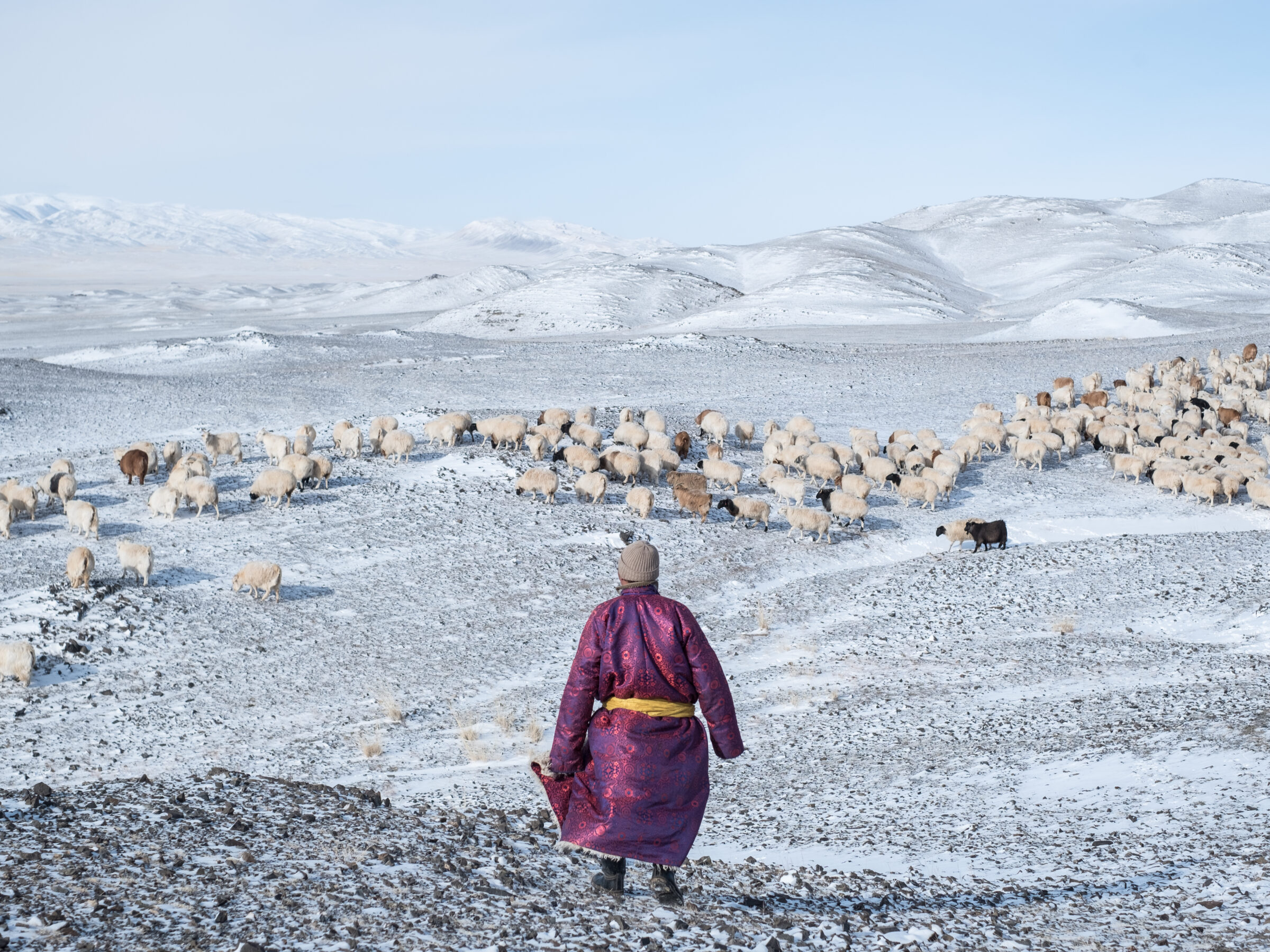The Eeltei Baylag Cooperative Network (EBCN) is an umbrella cooperative that brings together a network of 9 semi-nomadic herder cooperatives across 3 major regions of Mongolia whose ultimate goal is to responsibly market unspun fiber and finished products of certified sustainable cashmere , both nationally and internationally. In 2023, following the evolution of the Mongolian regulatory context, the former Sustainable Cashmere Union became the secondary cooperative EBCN . EBCN is the result of 10 years of effort, involvement, experience and professionalism on the part of nearly 2,200 member herders , spread across 10 cooperatives self-managed in a democratic and transparent manner .
Each breeder who is a member of the cooperatives is committed to taking action on animal health, collective and sustainable management of pastures, improving the quality of their cashmere fiber and all the socio-economic and environmental criteria of the S3C certification . Since 2012, EBCN has benefited from the financial and technical support of the French NGO Agronomes et Vétérinaires Sans Frontières ( AVSF ) , to structure the world’s leading sustainable cashmere sector.
The existence of EBCN can only be understood by highlighting the intensification of climate change and soil degradation in Mongolian territory linked to overgrazing since the country entered the market economy in 1991 when the surge in the price of the golden fleece led to an exponential increase in livestock, particularly goats, impacting biodiversity and degrading pastures . Herders have had to organize themselves in order to preserve their ancestral way of life while continuing to evolve in a fragile ecosystem, with a harsh climate and where working conditions are difficult. Negative winter temperatures fluctuate around -30° and can drop to -40°, making work laborious. In summer, after facing the violent spring winds, drought and low water availability are increasingly frequent.
EBCN aims to support traditional pastoralism and the Mongolian way of life, which are essential for food security, sustainable livelihoods, environmental health, and Mongolian identity. At the same time, various industrial players (washing, dehulling, spinning, etc.) can express their know-how through quality raw materials , required in the luxury sector. This includes brands that consolidate their promises to responsible consumers regarding their ecological, social, and animal welfare commitments.
